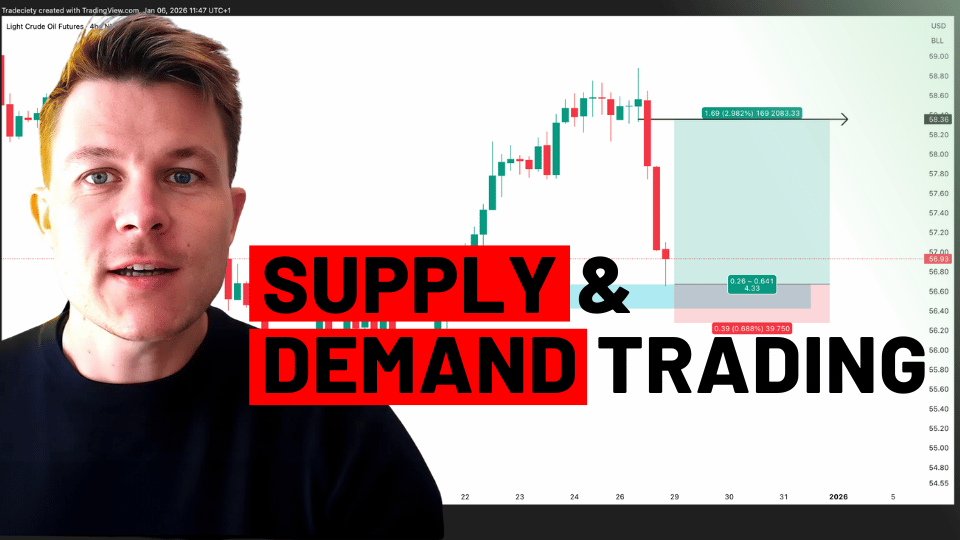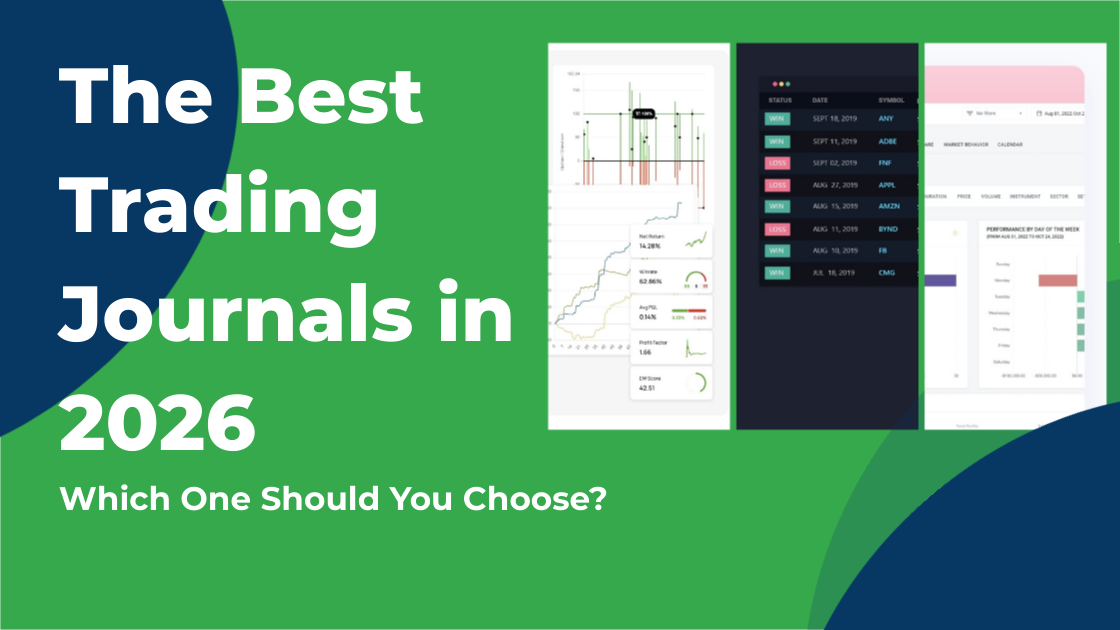Supply and Demand Trading in 2026
We have been trading supply and demand strategies for over ten years, and they have stood the test of time remarkably well. Supply and demand is...

I won’t sugarcoat it because from own experiences I know very well that trading is hard and challenging. No wonder that the analysis of brokerage data confirmed that 40% of traders quit after 1 month and only 7% are still active after 5 years.1
But why is it so hard and what makes traders struggle so much? The reason why so many traders give up too early and don’t see the results they are looking for can be boiled down to 9 principles. The following points will help you understand what it takes to survive your first year(s) as a trader and also how to pave the way for a great trading future.
The first question traders always ask is “How long does it take to turn $1000 into $1.000.000” and this is a very wrong question to ask when starting out. Yes, it is possible to make a lot of money but it is much more likely that you will lose (several) trading accounts before that. Thus, you should ask yourself: “how can I not lose all my money?”
Although it does not sound good and it might be a downer for some of you, it is important to realize that you won’t make a lot any money in your first year as a trader. If you can trade around break-even and not lose any money, you are already better than 99% of all traders and are off to a great start.
Having wrong expectations often causes traders to quit early because when reality catches up and when your high expectations are not met, it can create frustration and anger. Accept that you won’t make a living off of your trading for the next few years and focus on the process. The money will follow.
When starting out, you have to focus on not losing all your money so that you can keep trading and learning.
If you are not going to make any money, what are you going to do that first year?! The first steps of a trader consist of getting familiar with the market and the market dynamics. You should look for a decent mentor (more on that later) and start studying as much as you can.
Then, you should pick ONE method or approach and start putting all your focus on learning that one approach. Over the course of your trading career you will most likely go through several systems and try out different things, which is normal, but you should stay away from frequent “system hopping” and changing your approach every month.
“The jack of all trades and the master of none” is what typically happens to most traders. Don’t become one of them.
It’s important to develop the right mindset and stay away from gambling and the get-rich-quick promises.
A huge issue many traders deal with on a daily basis is that they interpret losing trades completely wrong. First of all, you MUST understand that losses are just as normal as winning and that no matter how good you are, losing trades will never go away.
Second, you have to distinguish between “normal” losing trades and “dumb” losses. Normal losses are the ones where you did everything right, you followed the plan and executed the system. A loss, then, is nothing to worry about and the market just did not agree with your idea. Move on and brush it off.
A dumb loss, on the other hand, is a loss where YOU screwed up. A trader who believes that he is in a losing streak but all his losses are dumb losses is actually not experiencing a losing streak, but he is just trading poorly. Many traders believe that their system is “not” working, but upon closer inspection, you will usually find that their system is totally fine – it’s just them screwing up.
Many people are always in a hurry and they wonder if they are too old to become traders. Just as with expectations, if you approach trading from such a point of view, it will negatively impact your trading habits.
You will rush into trades, not learn the craft the right way, always feel that you must be in a trade and take too much risk.
But when is it too late to start trading? I discussed this topic in a recent podcast:
We have briefly touched on system hopping and it’s important to avoid this terrible behavior and mindset. You should AT LEAST give your trading method 6 – 9 months before you start changing it completely.
Also, really try to understand the tools you are using. Most traders use indicators or trading methods and don’t fully understand what they are doing. If you want to become a professional, profitable, full-time trader, you have to learn your craft and stay away from the signal hunting and get rich quick mentality. If you ever find yourself using tools and indicators and you do not fully understand what they are doing, you have to step back and do your homework.
We always stress that you have to become an expert in your field. This means, pick your one trading approach and try to learn as much as you can about it. The top performers in any field are always the ones who have mastered one specific set of skills and did not spread themselves too thin.
Mentors are great, but they can also be the complete opposite. There are a lot of charlatans out there which make promises about the easy and fast money. Claims about doubling your account year after year, trading 2 hours per day and making “a killing” or other too-good-to-be-true claims are always that – simply not true.
What do you need a mentor for?
Almost all profitable traders trade a system they have somehow developed themselves – at least to some degree. A trading system is something very personal and it has to fit your personality and your character. Thus, do not look for a mentor who promises the “best returns”, but someone who can teach you about trading in general. Someone who builds your mindset, talks about trading psychology, the long-term concept of trading, helps you avoid common problems and prepares you for your journey.
Don’t confuse a mentor for a signal provider or just someone you buy a system from, but a person you can reach out to and who actively helps you become a better trader.
Furthermore, joining a group of like-minded traders is also very important. Stay away from twitter or random forums where everyone has a different approach and just throws around ideas. This will just create confusion and frustration. We also offer a forum for our own students where everyone trades a similar way and our discussion is targeted around one trading approach. This creates consistency and eliminates all the noise.
Do you remember your last 10 trades? Do you know which mistake has caused you the biggest losses? Do you know which setup performs best and if you manage your trades correctly? Do you leave money on the table by inefficiently exiting trades?
If you answer these questions with no or I don’t know, then you MUST get a trading journal.
A trading journal is a tool where you record your past trades and then get meaningful results from it. How can traders expect to improve and become better if they have no way of reviewing what has happened to them?
Any trading book and every professional trader will tell you that a journal is the one must-have tool every trader should have.
More: Why trading journal
In any situation we usually all know what we should be doing. In theory, we know how to get a sixpack, be healthier, have better relationships with the people around us, get better grades and be a better employee. But just look around you and you quickly notice that knowing what to do and actually doing those things are very different.
If you want to be successful in any field, you have to start doing more of the things that you KNOW you should be doing. Usually, those things aren’t “fun” and it takes discipline to do them. Like journaling all your trades, reviewing trading performance, backtesting your ideas, staying out of trades when no signal is there etc.
But we all know that those are the things that will make you better. You won’t become a better trader by just staring at charts all day long. To get going, I recommend scheduling 30 minutes per day to do some tasks that you know will make a difference but you always put them off. You will create momentum and see that it is not that bad.
Demo trading has its place and is certainly recommended for new traders. Spending your first few months on demo and/or a backtesting software is necessary to familiarize yourself with the way the trading mechanics and market dynamics work.
Staying too long on demo, though, can have a negative effect. Demo trading eliminates the emotional aspect of trading and it does not teach you how to handle the real money pressure. Setting up a small (SMALL!) live trading account and getting your feet wet is a great way to practice. Just be careful that you don’t start gambling when your trading account is too small.
Your first steps as a trader should always be protection, protection, protection. How to protect your account and thinking about how you can lose less instead of winning more should always be your first priority. Most new traders already think about where they want to be in 5 or 10 years and completely forget that they won’t get there if they are not laying a solid foundation NOW.
Staying in the game long enough to make it is the real challenge for newer traders. Burning through account after account will also cost you heaps of emotional capital and eventually you will simply give up.
References:
1Barber, Lee, Odean (2010): Do Day Traders Rationally Learn About Their Ability?

We have been trading supply and demand strategies for over ten years, and they have stood the test of time remarkably well. Supply and demand is...

3 min read
Choosing the right trading journal is essential for traders wanting to analyze performance, refine strategies, and improve consistency. In this...

3 min read
“95% of all traders fail” is the most commonly used trading related statistic around the internet. But no research paper exists that proves this...